In recent years, the interest in healthy snacking and plant-based diets has surged, leading to a growing demand for nuts, with cashews being a popular choice. However, cashews can be costly, prompting consumers, manufacturers, and retailers to seek cost-saving opportunities by purchasing raw cashews in bulk. This article explores the economics of buying bulk raw cashews, highlighting the benefits, challenges, and strategies to procure them at lower prices. Understanding the Cashew Industry: Cashews are native to South America and are now primarily cultivated in tropical regions such as India, Vietnam, and Ivory Coast. The cashew journey begins with the harvesting of the cashew apple, followed by the extraction of the nut, which is then dried and processed. The processing typically involves roasting, shelling, grading, and packaging, with raw cashews being the basic raw material for further processing. Benefits of Bulk Raw Cashews: 1. Cost Savings: Purchasing cashews in bulk offers significant cost advantages compared to retail packaged options. Bulk buying bypasses the expenses associated with packaging, distribution, brand mark-up, and retail store overheads. 2. Quality Control: By securing raw cashews directly from suppliers, buyers have better control over the quality, freshness, and processing conditions. This enables stricter adherence to specific quality requirements, ensuring that the cashews meet the desired standards and specifications. 3. Versatility in Processing: Bulk raw cashews offer businesses the flexibility to process them further according to their specific needs. This allows for customization and flavoring, catering to diverse market demands and creating added value for buyers. Challenges in Procuring Bulk Raw Cashews: While there are compelling advantages to buying bulk raw cashews, several challenges exist in this part of the supply chain: 1. Supply Chain Complexity: Managing the complexity of the cashew supply chain, including navigating multiple intermediaries, can be cumbersome. Directly sourcing bulk cashews requires strong relationships with suppliers, detailed market knowledge, and efficient logistics capabilities. 2. Price Volatility: The cashew market can be inherently volatile, with prices subject to fluctuations due to factors such as weather conditions, crop yields, currency fluctuations, and global demand-supply dynamics. Buyers of bulk raw cashews must closely monitor market trends and hedge against price risks. 3. Quality Assurance: Ensuring consistent quality and minimizing risks associated with bulk purchases can be challenging.
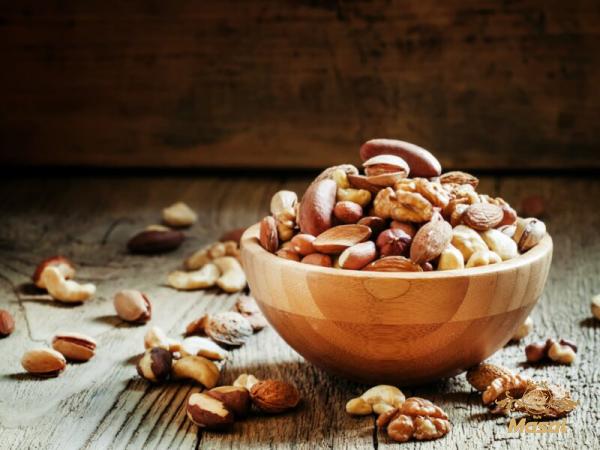
nut
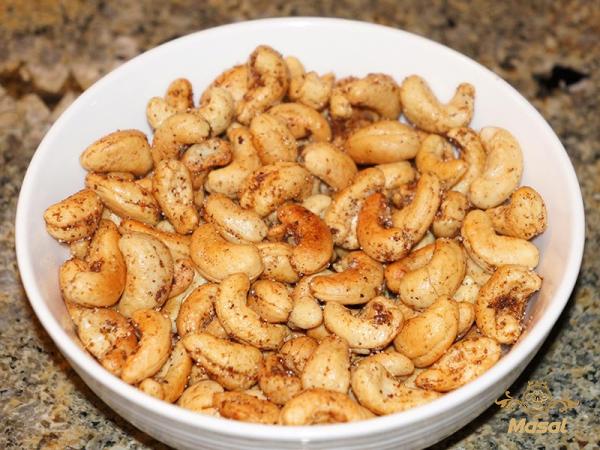 Thorough due diligence is essential to assess the reputation, reliability, and adherence to quality standards of potential suppliers to avoid potential quality issues. Strategies for Purchasing Bulk Raw Cashews Cheap: 1. Establish Direct Relationships: Establishing direct relationships with cashew growers, cooperatives, or cashew processors reduces the number of intermediaries involved, leading to cost savings. This direct relationship enables negotiation of better prices, assurance of quality standards, and improved transparency in the supply chain. 2. Participate in Cashew Auctions: Participating in cashew auctions, a common practice in countries like Vietnam and India, allows prospective buyers to bid on bulk raw cashews. Auctions provide opportunities to procure cashews at competitive prices, often below prevailing market rates. 3. Collaboration and Market Intelligence: Collaborating with other businesses in the industry or joining industry associations can provide access to reliable market intelligence. Sharing information on suppliers, market trends, and negotiation tactics can help buyers secure better prices and navigate volatility. 4. Leverage Seasonal Discounts: Cashews have seasons of peak production when prices tend to be lower. Identify and take advantage of these peak periods to negotiate better rates with suppliers. Timely procurement and storage under controlled conditions can help buyers leverage favorable pricing outcomes. Conclusion: Buying bulk raw cashews offers the potential for significant cost savings while allowing businesses to exercise greater control over quality and processing. However, challenges such as supply chain complexity, price volatility, and quality assurance must be carefully managed. Therefore, developing direct relationships, participating in auctions, collaborating with industry peers, and leveraging seasonal discounts are strategies that can help businesses procure bulk raw cashews at competitive prices. By implementing these approaches, companies can capitalize on the economic benefits of buying bulk raw cashews, fueling their growth and satisfying the increasing demand for this nutritious and versatile nut.1. Directly Sourcing from Cashew Growers and Processors: Establishing direct relationships with cashew growers and processors is a key strategy for purchasing bulk raw cashews at lower prices. By cutting out middlemen, businesses can negotiate better deals, eliminate mark-ups, and ensure transparency in the supply chain. This approach requires extensive market research, networking, and building trust with suppliers. Visiting cashew farms and processing facilities also provides firsthand knowledge of the production process and quality control measures. 2. Collaborating with Industry Peers: Collaborating with other businesses in the industry, especially those who have experience in bulk cashew procurement, can be highly beneficial. Sharing information on reliable suppliers, market trends, and negotiation tactics can help buyers secure better prices. Industry associations, trade shows, and conferences are excellent platforms for networking and building relationships with industry peers. Such collaborations can also lead to collective buying power, further enhancing cost-saving opportunities.
Thorough due diligence is essential to assess the reputation, reliability, and adherence to quality standards of potential suppliers to avoid potential quality issues. Strategies for Purchasing Bulk Raw Cashews Cheap: 1. Establish Direct Relationships: Establishing direct relationships with cashew growers, cooperatives, or cashew processors reduces the number of intermediaries involved, leading to cost savings. This direct relationship enables negotiation of better prices, assurance of quality standards, and improved transparency in the supply chain. 2. Participate in Cashew Auctions: Participating in cashew auctions, a common practice in countries like Vietnam and India, allows prospective buyers to bid on bulk raw cashews. Auctions provide opportunities to procure cashews at competitive prices, often below prevailing market rates. 3. Collaboration and Market Intelligence: Collaborating with other businesses in the industry or joining industry associations can provide access to reliable market intelligence. Sharing information on suppliers, market trends, and negotiation tactics can help buyers secure better prices and navigate volatility. 4. Leverage Seasonal Discounts: Cashews have seasons of peak production when prices tend to be lower. Identify and take advantage of these peak periods to negotiate better rates with suppliers. Timely procurement and storage under controlled conditions can help buyers leverage favorable pricing outcomes. Conclusion: Buying bulk raw cashews offers the potential for significant cost savings while allowing businesses to exercise greater control over quality and processing. However, challenges such as supply chain complexity, price volatility, and quality assurance must be carefully managed. Therefore, developing direct relationships, participating in auctions, collaborating with industry peers, and leveraging seasonal discounts are strategies that can help businesses procure bulk raw cashews at competitive prices. By implementing these approaches, companies can capitalize on the economic benefits of buying bulk raw cashews, fueling their growth and satisfying the increasing demand for this nutritious and versatile nut.1. Directly Sourcing from Cashew Growers and Processors: Establishing direct relationships with cashew growers and processors is a key strategy for purchasing bulk raw cashews at lower prices. By cutting out middlemen, businesses can negotiate better deals, eliminate mark-ups, and ensure transparency in the supply chain. This approach requires extensive market research, networking, and building trust with suppliers. Visiting cashew farms and processing facilities also provides firsthand knowledge of the production process and quality control measures. 2. Collaborating with Industry Peers: Collaborating with other businesses in the industry, especially those who have experience in bulk cashew procurement, can be highly beneficial. Sharing information on reliable suppliers, market trends, and negotiation tactics can help buyers secure better prices. Industry associations, trade shows, and conferences are excellent platforms for networking and building relationships with industry peers. Such collaborations can also lead to collective buying power, further enhancing cost-saving opportunities.
Specifications of nut
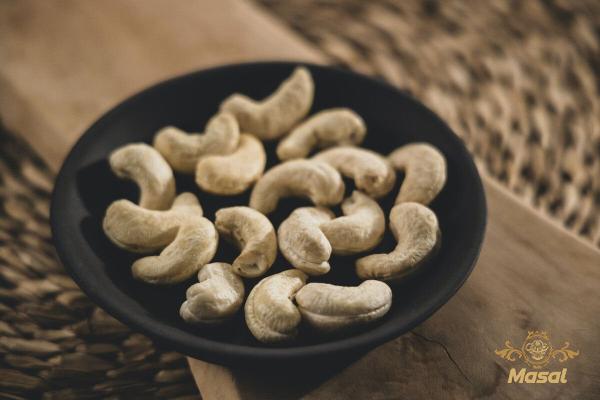 3. Participating in Cashew Auctions: Cashew auctions are common in countries like Vietnam and India, where bulk cashews are sold to the highest bidder. These auctions provide opportunities for buyers to procure raw cashews at competitive prices, often below prevailing market rates. Participating in cashew auctions requires careful planning and market research. Understanding the auction process, evaluating sellers’ reputations, and accurately assessing cashew quality are essential for successfully securing the best deals. 4. Leveraging Seasonal Discounts: Cashews have peak production seasons during which prices tend to be lower. For example, in many cashew-producing regions, the harvest season occurs between March and June. During this period, cashews are abundantly available, leading to lower prices. Timely procurement and storage under controlled conditions can help buyers take advantage of these seasonal discounts. Developing strong relationships with suppliers and maintaining regular communication facilitate access to favorable pricing opportunities during peak seasons. 5. Negotiating Volume Discounts: Bulk purchasing affords businesses the opportunity to negotiate volume discounts. Buyers who commit to purchasing larger quantities of bulk raw cashews receive preferential pricing from suppliers. By consolidating demand and placing sizable orders, buyers can secure lower per-unit prices. Negotiating volume discounts requires careful planning to ensure that the procurement quantities align with the business’s storage capacity, production needs, and market demand. 6. Exploring International Sourcing Options: Different countries excel in cashew production, and exploring international sourcing options can lead to significant cost savings. For example, Vietnam is one of the largest cashew exporters worldwide. Sourcing from countries with competitive advantages in cashew production can help buyers access cheaper raw materials. However, it is essential to evaluate factors such as quality, shipping costs, transportation time, and customs regulations when considering international sourcing. 7. Establishing Long-Term Contracts: Creating long-term partnerships with reliable suppliers can result in cost savings and stability in procurement. Signing long-term contracts provides mutual benefits, as it assures suppliers of steady demand and buyers of consistent pricing, quality, and supply. Establishing mutually beneficial relationships built on trust and open communication can lead to shared growth and increased efficiency in the cashew supply chain.
3. Participating in Cashew Auctions: Cashew auctions are common in countries like Vietnam and India, where bulk cashews are sold to the highest bidder. These auctions provide opportunities for buyers to procure raw cashews at competitive prices, often below prevailing market rates. Participating in cashew auctions requires careful planning and market research. Understanding the auction process, evaluating sellers’ reputations, and accurately assessing cashew quality are essential for successfully securing the best deals. 4. Leveraging Seasonal Discounts: Cashews have peak production seasons during which prices tend to be lower. For example, in many cashew-producing regions, the harvest season occurs between March and June. During this period, cashews are abundantly available, leading to lower prices. Timely procurement and storage under controlled conditions can help buyers take advantage of these seasonal discounts. Developing strong relationships with suppliers and maintaining regular communication facilitate access to favorable pricing opportunities during peak seasons. 5. Negotiating Volume Discounts: Bulk purchasing affords businesses the opportunity to negotiate volume discounts. Buyers who commit to purchasing larger quantities of bulk raw cashews receive preferential pricing from suppliers. By consolidating demand and placing sizable orders, buyers can secure lower per-unit prices. Negotiating volume discounts requires careful planning to ensure that the procurement quantities align with the business’s storage capacity, production needs, and market demand. 6. Exploring International Sourcing Options: Different countries excel in cashew production, and exploring international sourcing options can lead to significant cost savings. For example, Vietnam is one of the largest cashew exporters worldwide. Sourcing from countries with competitive advantages in cashew production can help buyers access cheaper raw materials. However, it is essential to evaluate factors such as quality, shipping costs, transportation time, and customs regulations when considering international sourcing. 7. Establishing Long-Term Contracts: Creating long-term partnerships with reliable suppliers can result in cost savings and stability in procurement. Signing long-term contracts provides mutual benefits, as it assures suppliers of steady demand and buyers of consistent pricing, quality, and supply. Establishing mutually beneficial relationships built on trust and open communication can lead to shared growth and increased efficiency in the cashew supply chain.
buy nut
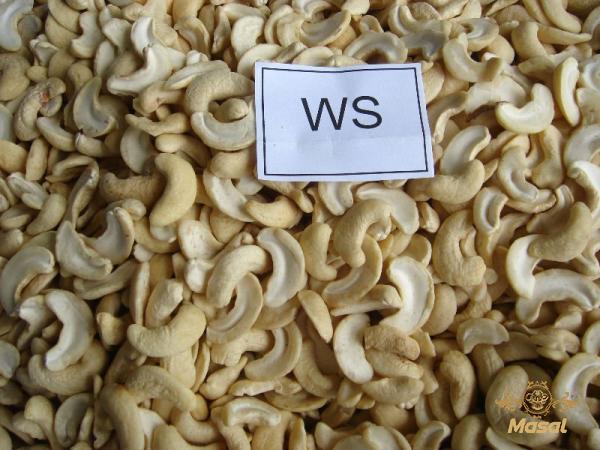 8. Implementing Efficient Logistics and Storage: Effective management of logistics and storage plays a vital role in reducing costs associated with bulk raw cashew procurement. Streamlining transportation, warehousing, and distribution processes can minimize overheads and ensure timely delivery. Investing in proper storage facilities, including temperature and humidity-controlled environments, preserves cashew quality and prevents losses due to spoilage or infestation. 9. Conducting Quality Assurance and Risk Assessment: Maintaining rigorous quality assurance protocols is crucial when purchasing bulk raw cashews. Buyers should conduct thorough due diligence to assess suppliers’ adherence to quality standards and certifications. Verification of processing, storage, and transportation practices is essential to minimize the risk of purchasing subpar or contaminated cashews. Implementing quality control measures and conducting periodic inspections also ensures consistency in cashew quality and mitigates potential financial and reputational risks. 10. Researching and Monitoring Market Trends: Monitoring cashew market trends is essential for identifying pricing patterns, supply-demand dynamics, and market forecasts. Staying informed about factors such as global production volumes, weather conditions, currency fluctuations, and trade policies enables buyers to strategize procurement and take advantage of favorable pricing opportunities. Regular market research, analysis, and engagement with industry experts help businesses make informed decisions and navigate price volatility in the cashew market. Conclusion: The economics of purchasing bulk raw cashews present an opportunity for cost-saving in the cashew industry. By understanding the benefits and challenges associated with bulk procurement, businesses can develop effective strategies to secure cashews at competitive prices. Direct sourcing, collaboration with industry peers, participation in auctions, leveraging seasonal discounts, negotiating volume discounts, exploring international sourcing options, establishing long-term contracts, implementing efficient logistics, conducting quality assurance, and researching market trends are key strategies that enable businesses to unlock cost-saving opportunities. By adopting these strategies and ensuring careful consideration of factors such as quality, reliability, and market conditions, buyers can maximize profitability while meeting the growing demand for bulk raw cashews.
8. Implementing Efficient Logistics and Storage: Effective management of logistics and storage plays a vital role in reducing costs associated with bulk raw cashew procurement. Streamlining transportation, warehousing, and distribution processes can minimize overheads and ensure timely delivery. Investing in proper storage facilities, including temperature and humidity-controlled environments, preserves cashew quality and prevents losses due to spoilage or infestation. 9. Conducting Quality Assurance and Risk Assessment: Maintaining rigorous quality assurance protocols is crucial when purchasing bulk raw cashews. Buyers should conduct thorough due diligence to assess suppliers’ adherence to quality standards and certifications. Verification of processing, storage, and transportation practices is essential to minimize the risk of purchasing subpar or contaminated cashews. Implementing quality control measures and conducting periodic inspections also ensures consistency in cashew quality and mitigates potential financial and reputational risks. 10. Researching and Monitoring Market Trends: Monitoring cashew market trends is essential for identifying pricing patterns, supply-demand dynamics, and market forecasts. Staying informed about factors such as global production volumes, weather conditions, currency fluctuations, and trade policies enables buyers to strategize procurement and take advantage of favorable pricing opportunities. Regular market research, analysis, and engagement with industry experts help businesses make informed decisions and navigate price volatility in the cashew market. Conclusion: The economics of purchasing bulk raw cashews present an opportunity for cost-saving in the cashew industry. By understanding the benefits and challenges associated with bulk procurement, businesses can develop effective strategies to secure cashews at competitive prices. Direct sourcing, collaboration with industry peers, participation in auctions, leveraging seasonal discounts, negotiating volume discounts, exploring international sourcing options, establishing long-term contracts, implementing efficient logistics, conducting quality assurance, and researching market trends are key strategies that enable businesses to unlock cost-saving opportunities. By adopting these strategies and ensuring careful consideration of factors such as quality, reliability, and market conditions, buyers can maximize profitability while meeting the growing demand for bulk raw cashews.


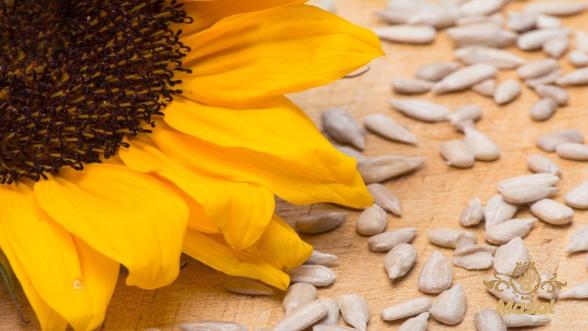
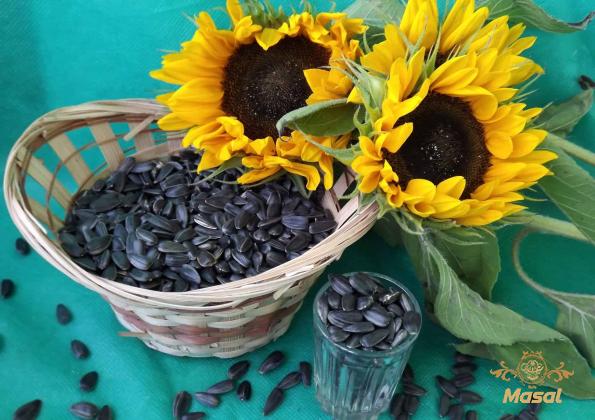
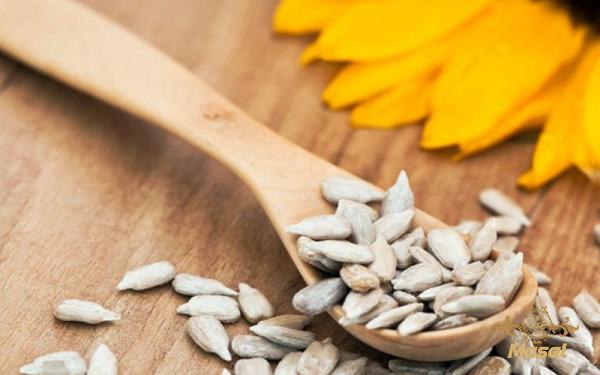
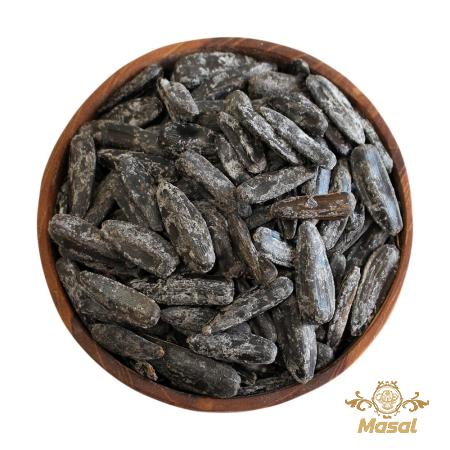
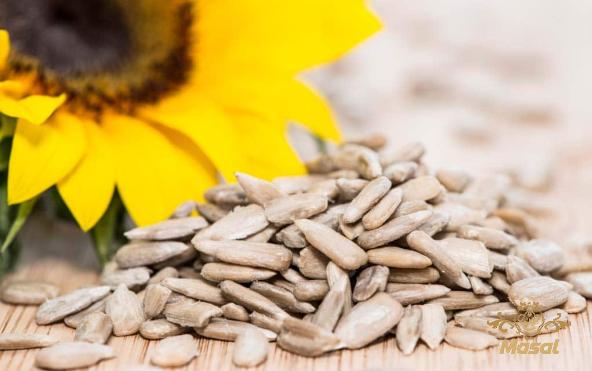
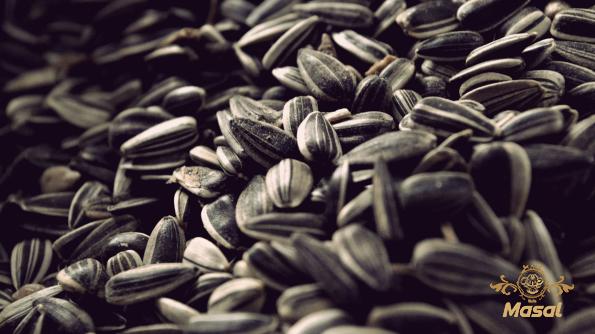

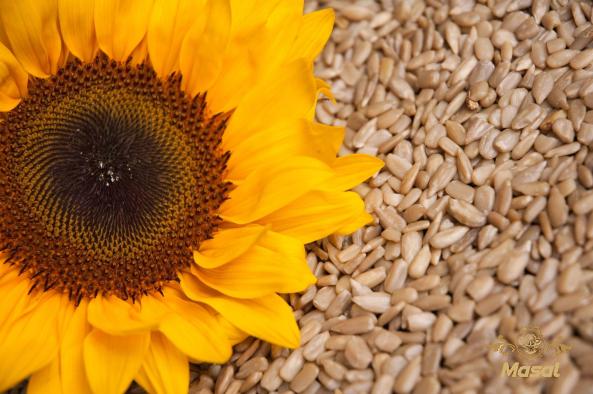
Your comment submitted.